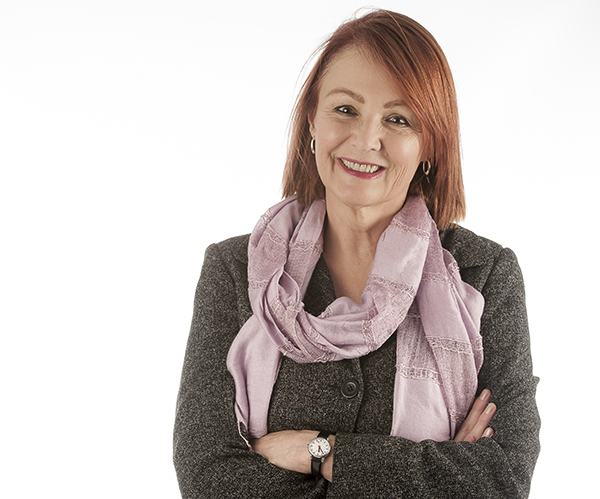Latest News Archive
Please select Category, Year, and then Month to display items
08 April 2021
|
Story Thabo Kessah
|
Photo UFS Photo Archive
 Dr KPD Maphalla with former UFS Chancellor, Dr Franklin Sonn, during the graduations in April 2007.
Dr KPD Maphalla with former UFS Chancellor, Dr Franklin Sonn, during the graduations in April 2007.
The University of the Free State is sad to learn of the passing of alumnus and award-winning Sesotho literary giant, Dr KPD Maphalla.
The literary works of Dr Khotso Pieter David Maphalla, like many other African writers and artists, were influenced and characterised by his own era of powerful forms of oppression and exclusion from dominant literary discourses. In his own right and through his writings of poetry, novels, short stories, and kodiamalla (dirge), he articulated a deliberate political and social protest and pushed for a place for African languages in literature at the height of apartheid.
“He entered the professional scene with his ground-breaking novel, Kabelwamanong, in 1982 at the age of 27. His career actually started in 1971 while he was still at school. Since his first novel, he has produced at least two books annually, covering the genres of poetry, novels, dramas, and short stories. As a dramatist, Dr Maphalla has written a number of excellent and educative radio dramas for the then Radio Sesotho (now Lesedi FM),” said his long-time friend and Head: African Languages at the University of the Free State, Dr Nyefolo Malete.
“It was for this writing prowess that he received recognition from the UFS when he was awarded an Honorary Doctorate in Literature by the Department of African Languages during a momentous ceremony on the Qwaqwa Campus in 2007,” added Dr Malete.
Dr Malete also revealed that, despite losing the use of his right hand after suffering a stroke following a car accident in the late 1990s, Dr Maphalla continued writing using his left hand. “He was adamant that, what he referred to as his ‘supposed disability’, would not deter his passion for writing.”
Dr Maphalla’s work has also produced numerous scholarly studies by the likes of Profs Moleleki Moleleki (protest poetry), Thapelo Selepe (lament and protest poetry), and Dr Seema Seema (process of cross-cultural communication). He was a committed Qwaqwa community member, who was also instrumental in the founding of Qwaqwa Community Radio (2000) and Metjodi Writers (2006), among others. He has written more than 70 books, many of which have been prescribed texts in schools.
Some of the awards he has won include:
South African Centre for Digital Language Resource (SADiLar) Sesotho Lexicographic Unit (Sesiu sa Sesotho) Lifetime Award for outstanding literary works and for promoting Sesotho literature (2019).
The Literature Festival and the University of the Free State Award for enormous contribution to Sesotho literature by a South African writer (2019).
Lifetime Achiever Award in Literature awarded by the Department of Arts and Culture (2005).
M-Net Book Prize for Sesotho poetry (2005). The first and thus far the only Sesotho author to have received this honour.
M-Net Book Prize for best novel (1996).
De Jager-HAUM Literary Award for his volume of short stories, Mohlomong Hosane (1993).
Thomas Mofolo Trophy for Best Novel, Best Poetry, and the Overall Award (1992).
Thomas Mofolo Trophy for Best Poetry (1991).
Dr JJ Moiloa Floating Trophy for Best Sesotho Poetry Book of the Year, Kgapa tsa ka (1985).
Research chair into Higher Education gets boost for five more years
2017-11-21

Prof Melanie Walker, Director of the Centre for Research on
Higher Education and Development (CRHED).
Photo: Supplied
The research Chair in Higher Education and Human Development within the Centre for Research on Higher Education and Development (CRHED) at the University of the Free State has secured funding for another five years. It follows a favourable evaluation by the South African Research Chairs Initiative (SARChI) of the research project at the UFS.
The Director of the Centre, Prof Melanie Walker, says she is delighted by the recognition of the Chair's hard work and significant productivity. “This new round of funding secures the centre and its activities for the next five years.”
Under the auspices of the Chair, research is conducted on higher education, inequalities and social justice, and how or if universities foster the human capabilities and aspirations of students. In essence, the research studies whether higher education makes a difference to the lives of students, their families and communities. Prof Walker says the Chair's projects look at issues of access, participation and transitions into work, as well as gender, race and social class. The research uses quantitative and qualitative methods and includes a strand of participatory research projects with students.
Prof Walker says through the Chair research project, and the Centre, researchers have developed extensive international links and produced international quality research and publications. “We foster high-quality PhD graduates as a new generation of social science academics.” The Chair has in the first five years produced 10 PhDs and four master’s students.
The project in the next five years will continue with its focus on higher education and human development research. Prof Walker says all the research efforts seek to contribute to more justice in society and universities and to contribute to debates, policy and practices in higher education and a scholarly knowledge base.
The Research Chairs Initiative aims to improve the research capacity at public universities to produce high-quality postgraduate students, research and innovative outputs. The assessors looked at features such as the number of students the research entity had trained and how many publications the research team had produced.